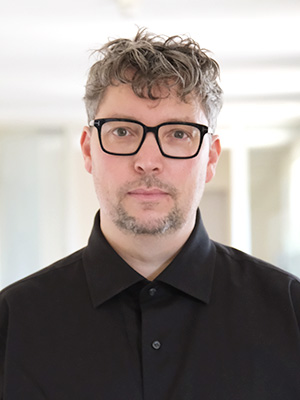Dr. Ben Trott

What does freedom mean to you?
To be free, it’s not enough to simply be free from direct constraints on one’s ability to do as one chooses so long as one doesn’t harm others or limit their freedom. If freedom involves things like the ability to play an active role in determining how we live together with others, or how we develop and express our individual and combined capacities and creativity, then this requires much more than the absence of constraints. It presupposes access to certain resources and infrastructures like food, housing, education, healthcare and transportation. But it also presupposes time. Time free from that which is required to meet or access these basic needs. Time to develop and follow one’s interests – and to develop new ones. And time to build relationships based on affection, care, cooperation and solidarity.
One of the difficulties with understanding what it would mean to really be free – i.e. to experience liberation – is that, in usual times, it’s actually very hard to imagine ways of living that are radically different from those that we know. Historically, new ideas of freedom and liberation have tended to emerge from within struggles against forms of un-freedom – when people are already in the midst of experiencing their capacity to change the way things are.
How does freedom feature in your work?
I’m working on two aspects of freedom at the moment. On the one hand, I’m trying to ask: what work is the idea of ‘freedom’ doing in those defenses of free speech that understand this primarily as a negative liberty – a question, first and foremost, of removing social as well as legal barriers to participating in a supposed ‘marketplace of ideas’? I want to know, how does this idea of freedom serve – or do a disservice to – those who have been particularly subject to state censorship and to censorious attitudes in society. I’m thinking for instance of those gender and sexuality minorities whose private correspondence, publications and artistic works have often been censored or stigmatized after having been deemed immoral or obscene.
On the other hand, I’m interested in the ways in which contemporary queer and trans scholars and movements have in recent years turned towards ideas of liberation that can be found in the manifestos and collective writings of 1970s movements against homo- and trans-phobia.
What project(s) are you working on during your fellowship at the Forum Basiliense?
I’m working on a book project that aims to provide a materialist account of so-called ‘cancel culture’, or the politicization of speech particularly around gender, sexuality and identity in the years that have followed the global economic crisis of 2007-8. The book focusses on conflicts around freedom of speech in Britain and the United States in particular, but some key aspects of the project are pertinent to debates around censoriousness and what often gets disparaged as ‘identity politics’ taking place elsewhere, including much of Europe.
